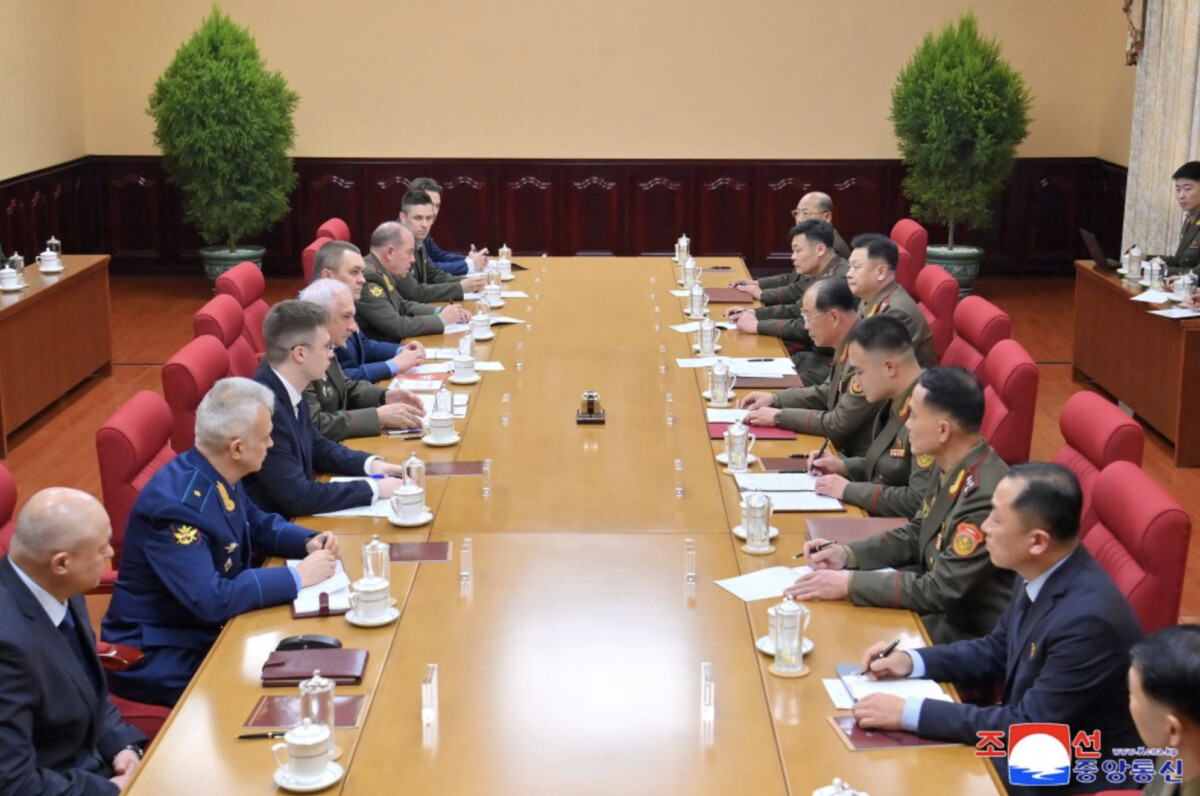Russian military chief visits Pyongyang to discuss ideological management of North Korean troops

A series of meetings last week in Pyongyang between Russian and North Korean officials responsible for political-ideological affairs indicates an intensified focus on ideological loyalty amid the ever-closening relationship between the two countries.
A delegation led by Viktor Goremykin, Moscow’s deputy defense minister and head of the Main Military-Political Directorate of the Russian Armed Forces, met with military leaders in Pyongyang who included senior officials of the Korean People’s Army’s General Political Bureau.
The meetings suggest that practical coordination in political-ideological affairs between the two militaries is entering a new phase.
Goremykin, who is personally under international sanctions over the invasion of Ukraine, is tasked with instilling ideological loyalty to the government of President Vladimir Putin.
He oversees ideological education, counterintelligence, and political surveillance within the Russian military and, as such, is a key figure. No precedent exists for someone in his position visiting North Korea.
It appears that he held substantive discussions about setting up a political management and ideological control system for North Korean troops deployed to the Russia-Ukraine war.
The meetings on November 5 addressed “ways to strengthen cooperation, exchange, and coordination between military political institutions in line with the expanding and deepening bilateral relations under the strategic guidance of the heads of state,” according to the state news agency KCNA.
This implies that practical discussions were held on ideological management, discipline maintenance, and information-sharing systems for North Korean troops deployed to the front lines.
South Korea’s National Intelligence Service (NIS) recently reported to the National Assembly that over 10,000 North Korean troops are on the Russian front, with around 1,000 combat engineers engaged in rear-area operations such as mine clearance. The NIS also reported that training and conscription efforts are ongoing inside North Korea in preparation for additional deployments.
On November 6, North Korean Defense Minister No Kwang-chol met again with Goremykin, and was joined by Vice Foreign Minister Kim Jong-gyu and Russian Ambassador to North Korea Alexander Matsegora, demonstrating the full mobilization of both diplomatic and military channels to lend strategic and diplomatic weight to the military cooperation.
Experts interpret this engagement as part of efforts to build a wartime alliance framework. Since the signing of the “Comprehensive Strategic Partnership Treaty” in June 2025, North Korea has reportedly deployed over 20,000 personnel to Russia, effectively serving as a manpower reservoir for the Russian military. In return, Russia has been providing North Korea with advanced military technology and capital, reinforcing a mutually complementary relationship.
North Korea’s efforts to strengthen its capacity for ideological control and discipline maintenance in wartime through cooperation with Russia could also impact its internal military command structure. This development suggests not only a shift in North Korea’s external military strategy but also potential changes in its internal mechanisms of political control.
- Remembering the Yeonpyeong Island bombardment - February 13, 2026
- The people at the front are the poorest: The life of a Party member - February 9, 2026
- What Venezuela taught me about North Korea - January 10, 2026

